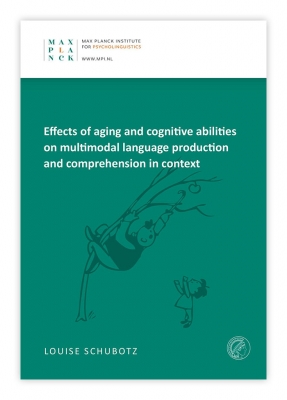Louise Schubotz will defend her thesis on Monday 17th of May 2021

Co-speech gestures - the meaningful hand movements that we make while we speak - are a fundamental component of our daily interactions. We use these hand movements to communicate relevant information to others. Likewise, co-speech gestures can also help us understand what others are saying. However, how does this change as we grow older? Do age-related cognitive changes cause older adults to focus on the spoken modality? Or do co-speech gestures provide an additional resource for older adults to compensate for age-related changes that negatively affect language production and comprehension?
In this thesis, Louise Schubotz shows that even though older adults can use co-speech gestures alongside speech during communication with the same flexibility as younger adults, whether they do so or not depends on a combination of contextual, pragmatic, and cognitive factors. Similarly, older adults can benefit from co-speech gestures during language comprehension, however, the benefit they receive is smaller compared to that of younger adults, at least partly due to differences in cognitive abilities. These findings have implications for general accounts of multimodal language production and comprehension, for future investigations of language use in aging, and for everyone interested in the interaction with older adults more generally.
Share this page